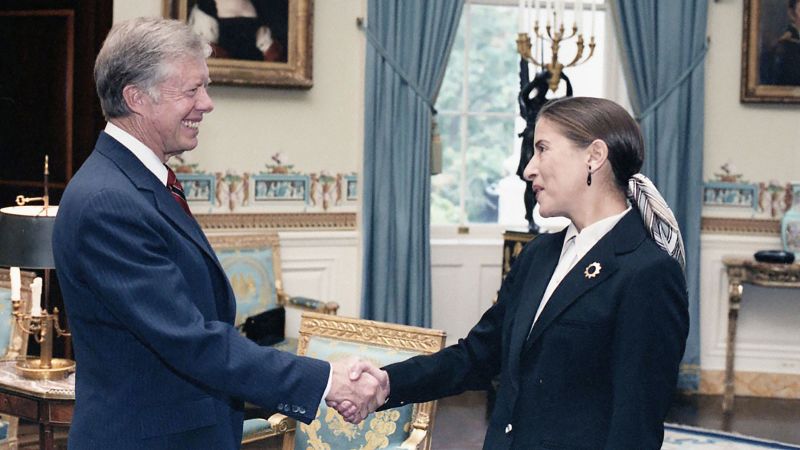The Groundbreaking Judicial Legacy of Jimmy Carter
CNN
Although Jimmy Carter served only a single full term as president without appointing a Supreme Court justice, his impact on the judicial landscape is unparalleled.
Diversifying the Federal Bench
Carter made history as the first president to significantly enhance diversity within the lower federal courts, appointing both women and minority judges. This groundbreaking approach was often highlighted by the late Justice Ruth Bader Ginsburg.
In 1980, Carter appointed Ginsburg to the US Court of Appeals in Washington, D.C., a pivotal move that paved the way for her later ascension to the Supreme Court.
During his presidency, women comprised a substantial share of confirmed circuit and district court nominees. According to a Congressional Research Service report, he appointed 41 women judges throughout his term.
A Record of Appointments
Out of 59 circuit court appointees, 12 were women, while 29 of his total 203 district court appointees were also female. Prior to Carter, only two women had served as circuit court judges and six as district court judges.
Ginsburg remarked, “Once Carter appointed women to the bench in numbers, there was no turning back,” underscoring the importance of his judicial choices.
Reflecting on past resistance to women in the judiciary, Ginsburg noted that even President Harry Truman faced objections when considering appointing a woman to the court, with justices suggesting it would complicate their informal discussions.
A Legacy of Inclusion
In total, Carter appointed a historic 57 people of color to the judiciary, including influential appellate judges like Leon Higginbotham on the 3rd Circuit, Amalya Kearse on the 2nd Circuit, and Damon Keith on the 6th Circuit.
Civil rights advocates hailed Carter’s efforts in fostering diversity on the bench, with law professor Sherrilyn Ifill emphasizing its importance for both the legitimacy and quality of judicial decisions.
Carter demurred when reflecting on his role in this transformation, asserting that “the nation was ready for it.”
A Missed Supreme Court Opportunity
Notably, Carter never had the chance to fill a Supreme Court vacancy. He is the only one-term president to complete a full term without an appointment to the court. Nevertheless, his focus on appointing women and minority judges likely influenced Ronald Reagan’s commitment during the 1980 campaign to appoint the first woman to the Supreme Court.
Reagan made that vow in October 1980, promising, “One of the first Supreme Court vacancies in my administration will be filled by the most qualified woman I can find.”
Carter dismissed Reagan’s pledge as a mere electoral tactic, stating, “Equal rights for women involves more than just one job for one woman.”
Following his election in 1981, Reagan fulfilled his promise by nominating Sandra Day O’Connor to the Supreme Court, marking a significant milestone for women in leadership. Bill Clinton later appointed Ginsburg in 1993, further building on Carter’s legacy.


